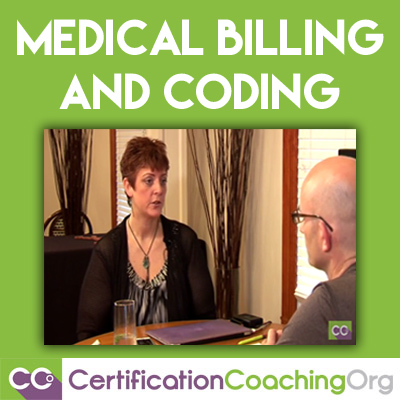Recently we had the opportunity to produce the CPC Exam Blitz Videos and livestream for Laureen Jandroep of CCO.us. After the production we asked her to sit down with us and talk a little bit more about beginning a career in the growing field of medical coding, medical billing and medical auditing.
Is Medical Billing and Coding a Good Career Choice?

Boyd: What kind of career advice do you have for people who are looking medical coding and medical billing, as a career? There’s a lot of choices right now. You get asked this question a lot. So what kind of advice do you give people?
Laureen: Typically I will have someone reach out to me and say, “I’m interested in medical billing and coding but I’m not really sure how to get started. Do I do the hospital coding, do I do the physician coding, do I do billing?” They’re a little bit lost but they kind of recognize that they’re interested in that field.
I normally will schedule a call with them and we’ll start exploring what they’re interested in but my advice normally is the same. I recommend that they start with a really good core credential. To me that’s the CPC, the Certified Professional Coder Credential. Even if they want to get into billing, coding is a part of billing and it’s really, I think, important to understand it. It helps you learn about all the different organ systems and things that you’ll be coding for.
Because really medical coders are translators. They’re translating the medical document, as far as what sickness or illness the patient has and what procedures were done to treat it and sometimes even how things happened, like accidents and things like that and then supplies. So there’s a lot that they need to figure out so that’s a really good core credential. It makes sure that they know the basics and it’s very well respected by perspective employers.
After that I tell them to look for things as you’re going through the medical coding course. Look for something that’s going to resonate with you that you’re really going to like. Maybe you love diagnostics coding … Like Alicia Scott, our educational director, she loves diagnostics coding. I like it, but she loves it. I love CPC coding, she just likes it.
It’s kind of interesting, you have your little niches that you like. Then I tell them, reach back out to me and we’ll talk about exploring those other avenues. Diagnostic coders love the new HCC coding. It’s very heavy in understanding chronic conditions that patients have, that’s what’s driving the reimbursement. If that’s something you love, it makes sense to do that.
The Growing Field of Medical Auditing
If you love E&M coding, which is like the office visits and things like that, becoming an auditor is really a good career choice. A lot of the people we get who already have some health care background, we get a lot of nurses, we encourage them to think about auditing because they already have that clinical understanding, so it makes it easier for them to audit.
Auditing is just double-checking and making sure what is being coded is accurate. So you do these computer programs or audit tools and it’s very interesting. That’s one thing you can audit, you can also audit surgery notes or many different things. People who get into auditing often times want to be their own consultant so they can be their own boss, they can have their own little business. That’s exciting too.
I am excited to be able to offer someone a career field that doesn’t currently require college education. That you can master these skills in half a year, 6 months. We’ve had some people learn it in 3 months and they totally, they were like a truck driver, a guy actually did this, we were amazed that a person can learn it in 3 months. We don’t recommend that, we normally say 4 – 6 months to be reasonable and to absorb all the material on it.
If you are interested in learning more about medical certifications like medical coding, medical billing and medical auditing, click on the link below to learn more at CCO.us.
Learn More Details About Medical Billing and Coding
Medical Billing and Coding Online Courses – Video
AAPC – Online Medical Coding Courses

![[CCO] Certification Coaching Organization LLC [CCO] Certification Coaching Organization LLC](https://www.cco.us/wp-content/uploads/2015/05/CCO-Logo-2015-d3-500px.png)